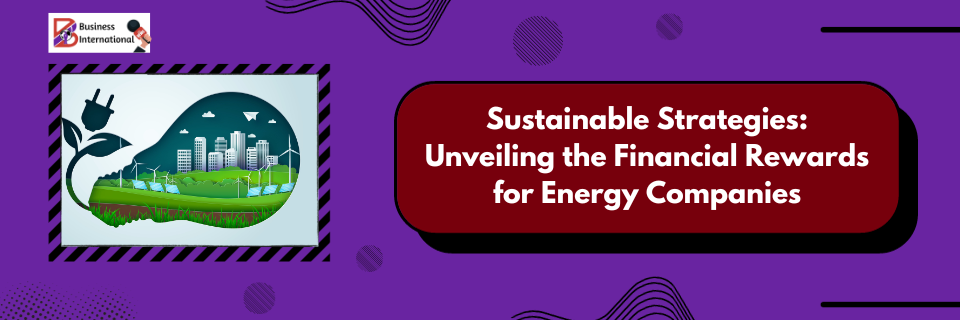Unlocking Four Key Business Advantages by Embracing Sustainability in the Energy Sector
01 Nov 2023

Unlocking Four Key Business Advantages by Embracing Sustainability in the Energy Sector
In recent years, businesses have faced increasing pressure from consumers, investors, and governments worldwide to embrace sustainability. More than 70 countries have now implemented Emissions Trading Systems (ETS) and carbon taxes, which collectively target approximately 25% of global greenhouse gas (GHG) emissions. Shareholders in publicly traded companies have proposed an unprecedented number of resolutions this year, urging companies to address environmental, sustainability, and governance (ESG) issues. Our own research, Consumers Unmasked: Stage 4, has underlined the strong consumer demand for more sustainable choices from businesses.
With these converging pressures, sustainability has evolved from being a mere "nice-to-have" for modern energy companies to a strategic imperative. Contrary to conventional wisdom that views ESG compliance as its sole benefit, a plethora of opportunities await those who incorporate sustainability into their core business strategy. Here are the top advantages that businesses can anticipate by making sustainability an integral part of their overall strategy:
Increased Revenue:
Our research underscores consumers' strong desire for affordable sustainability options, as evidenced by their repeated buying behaviors. For instance, the International Energy Agency's recent report reveals a surge in electric vehicle (EV) sales as prices have dropped. In 2022, despite a contracting global car market, EV sales exceeded 10 million units, marking a remarkable 55% growth from the previous year.
Reports also indicate that companies embracing ESG principles have enjoyed higher revenues, increased profit growth, and improved access to financing. Companies prioritizing ESG recorded a revenue increase of 9.7%, compared to only 4.5% for those who did not give it sufficient attention. ESG-focused companies achieved an average revenue growth of $2.1 trillion in the US, $930.5 billion in Europe, and $58.8 billion in Australia. Furthermore, businesses emphasizing ESG experienced a remarkable average profit increase of 9.1%.
Therefore, forward-thinking energy companies should focus on introducing economically sustainable products and services to open up new revenue streams and enhance consumer loyalty.
Cost Reductions:
Prioritizing sustainability not only boosts revenue but also helps cut costs. Many companies report significant cost savings as a primary advantage of sustainability, driven by innovations in resource recovery and product life extension. For instance, digital twin technology has helped various sectors optimize processes and reduce costs. The wind industry, through advanced digital twin solutions, was projected to save up to $1 billion in operational and maintenance costs over a decade, thanks to the implementation of GE's Predix and digital twin technology in 2018.
Recently, Verizon demonstrated the effectiveness of digital twin technology by saving over $100 million annually through network digital twins used to model energy consumption. By adopting and integrating emerging technologies and solutions, energy sector businesses can uncover new opportunities for cost savings.
Enhanced Market Value:
The sustainable investing market has experienced substantial growth, managing $1.9 billion in assets at the turn of the 21st century and reaching an estimated $37.8 trillion in assets under management by April 2022, according to a recent Bloomberg study. Companies emphasizing renewable energy utilization and development have excelled in market value, partly due to their alignment with current environmental sentiment. An example is Enphase Energy, which has witnessed remarkable stock growth of over 3,000% in the past five years.
Other market indicators, such as indexes tracking sustainability-focused companies, continue to indicate that businesses focused on ESG initiatives are outperforming the broader market.
Investment Opportunities:
Recognizing the significance of sustainability, companies are actively investing in sustainable assets, including start-ups, private equity, and venture funds. By aligning financial objectives with environmental and social sustainability, organizations can mitigate risks and potentially achieve attractive financial returns while effectively diversifying investment portfolios.
Additionally, some segments of the renewable energy sector have seen remarkable cost reductions in recent years. The UN's Human Development Report indicates that the costs for large-scale solar photovoltaics decreased by 89% between 2009 and 2019. These substantial cost reductions, along with improved revenues, make businesses more appealing to investors, demonstrating that they can generate substantial profits from the rising market value of renewable energy assets.
In this era of heightened environmental awareness and responsibility, companies have the opportunity to secure market share and thrive. Those that effectively embrace sustainability will not only contribute to environmental responsibility but also gain a competitive edge in the market. Ultimately, by embracing ESG principles, companies can become catalysts for positive change, securing long-term success and creating a more sustainable and prosperous future for all.